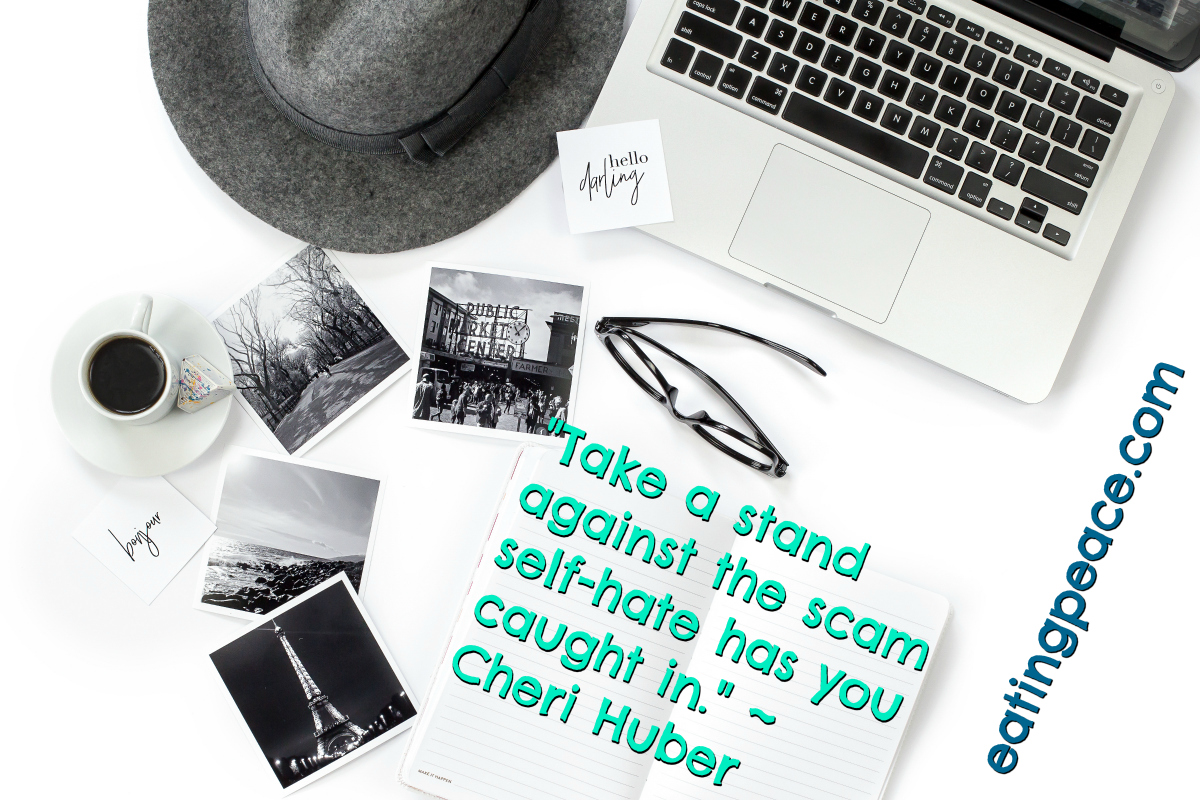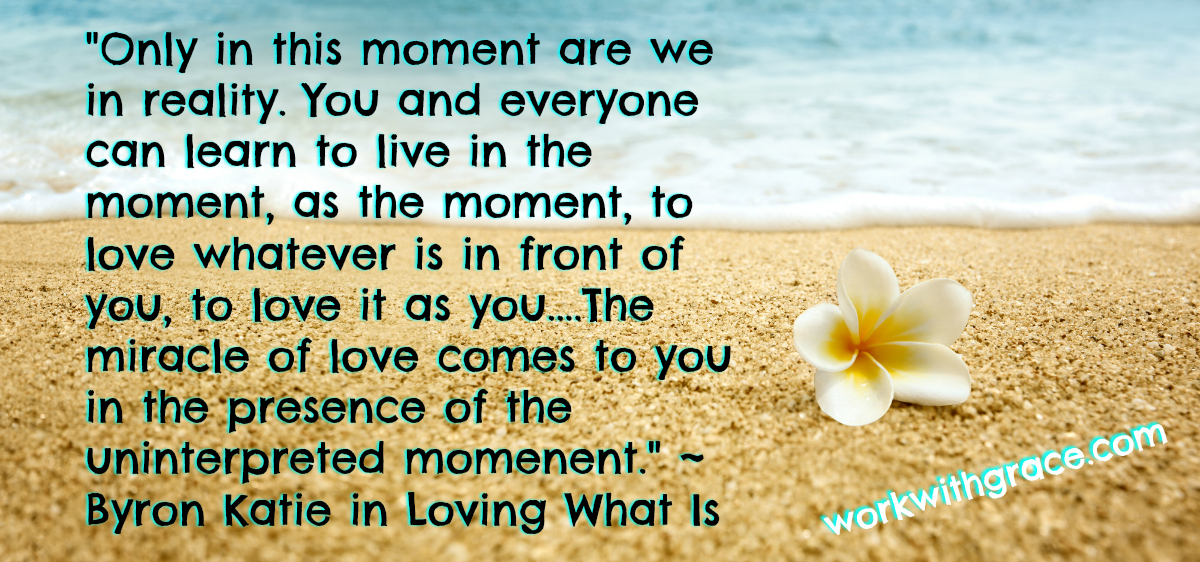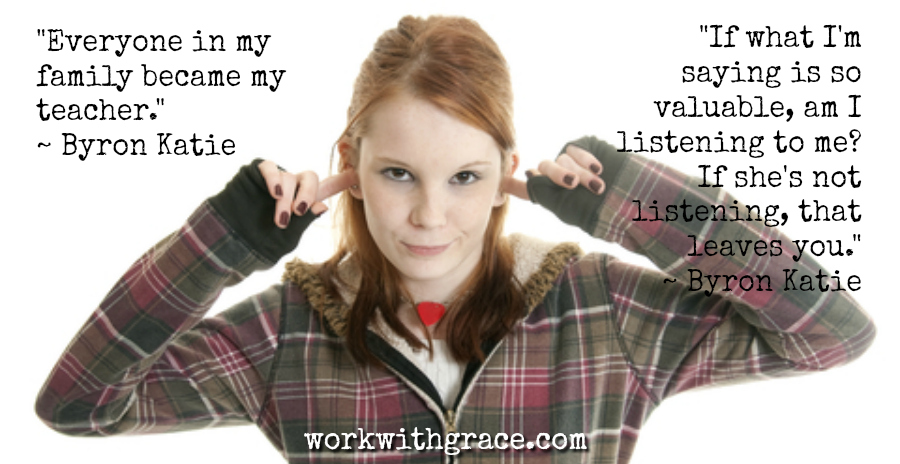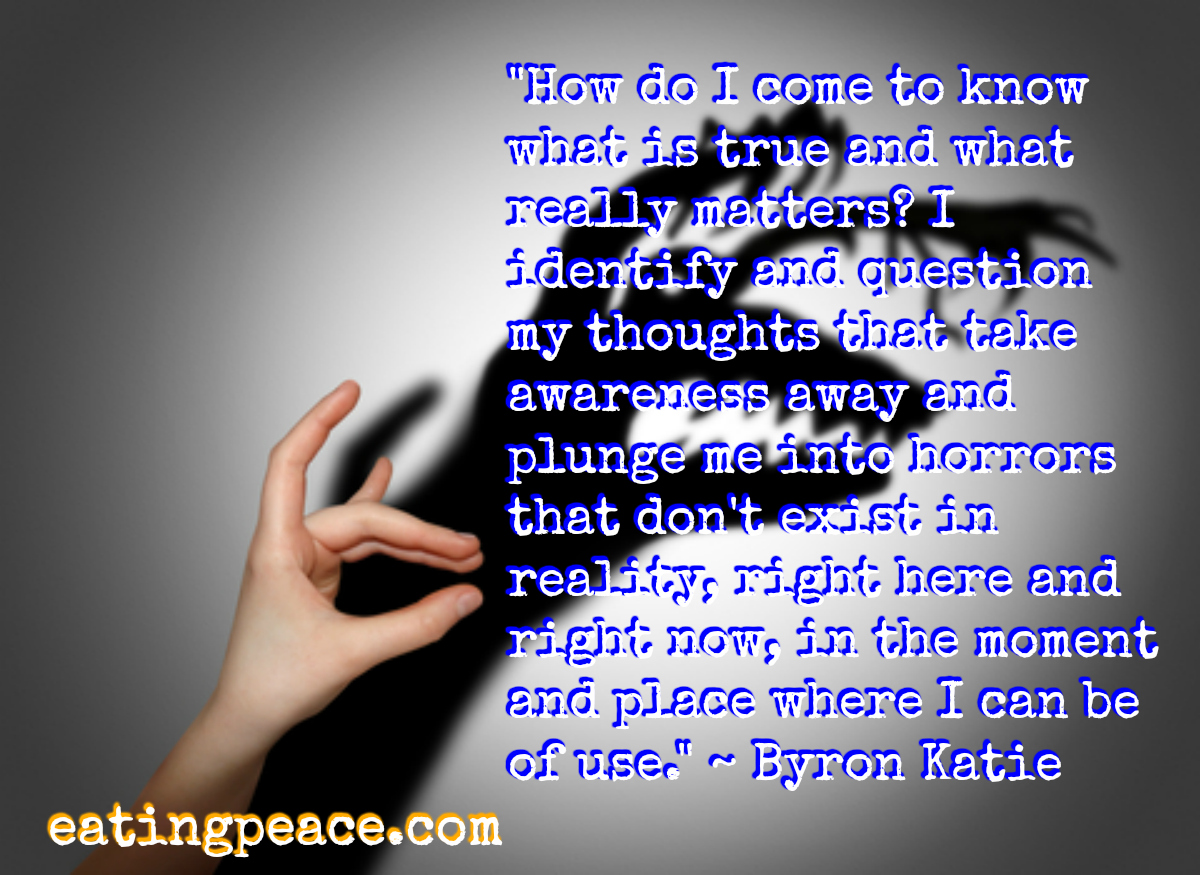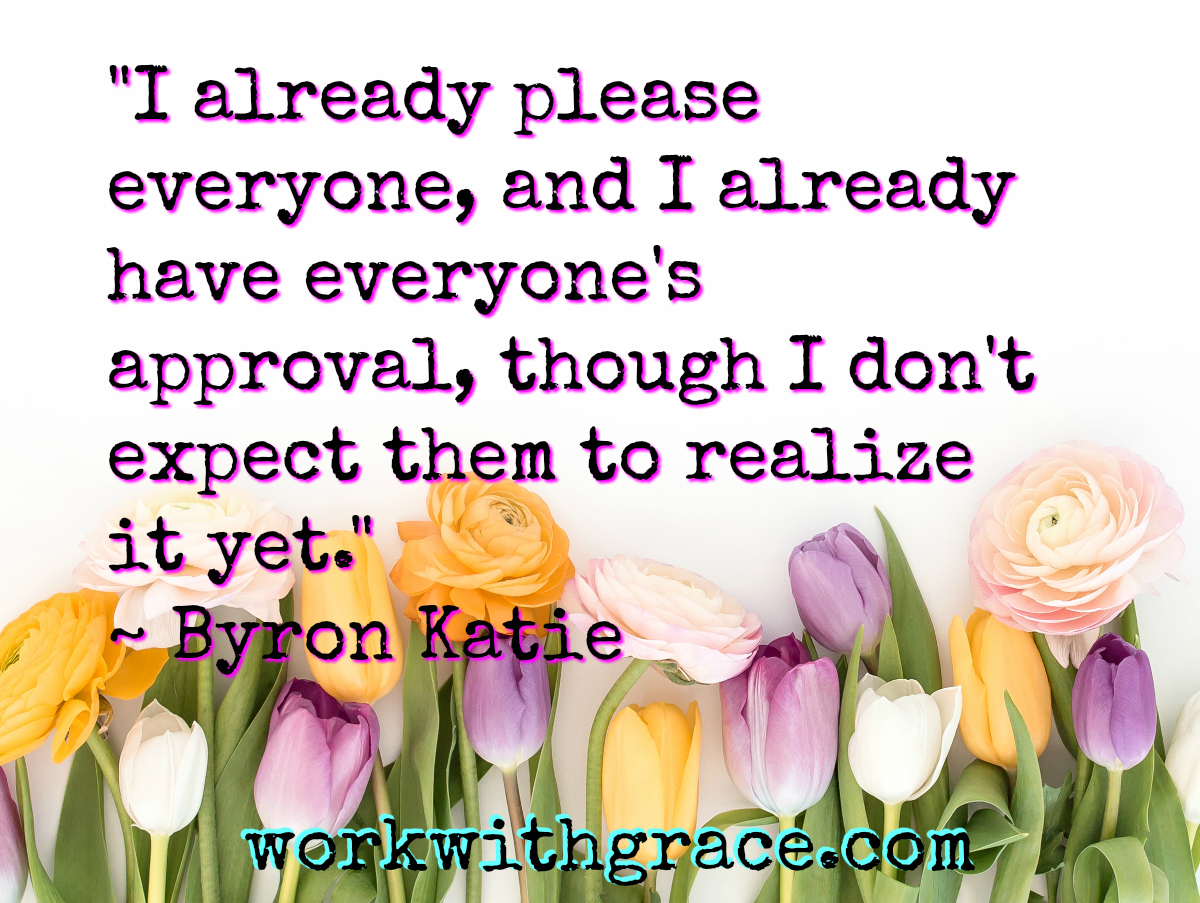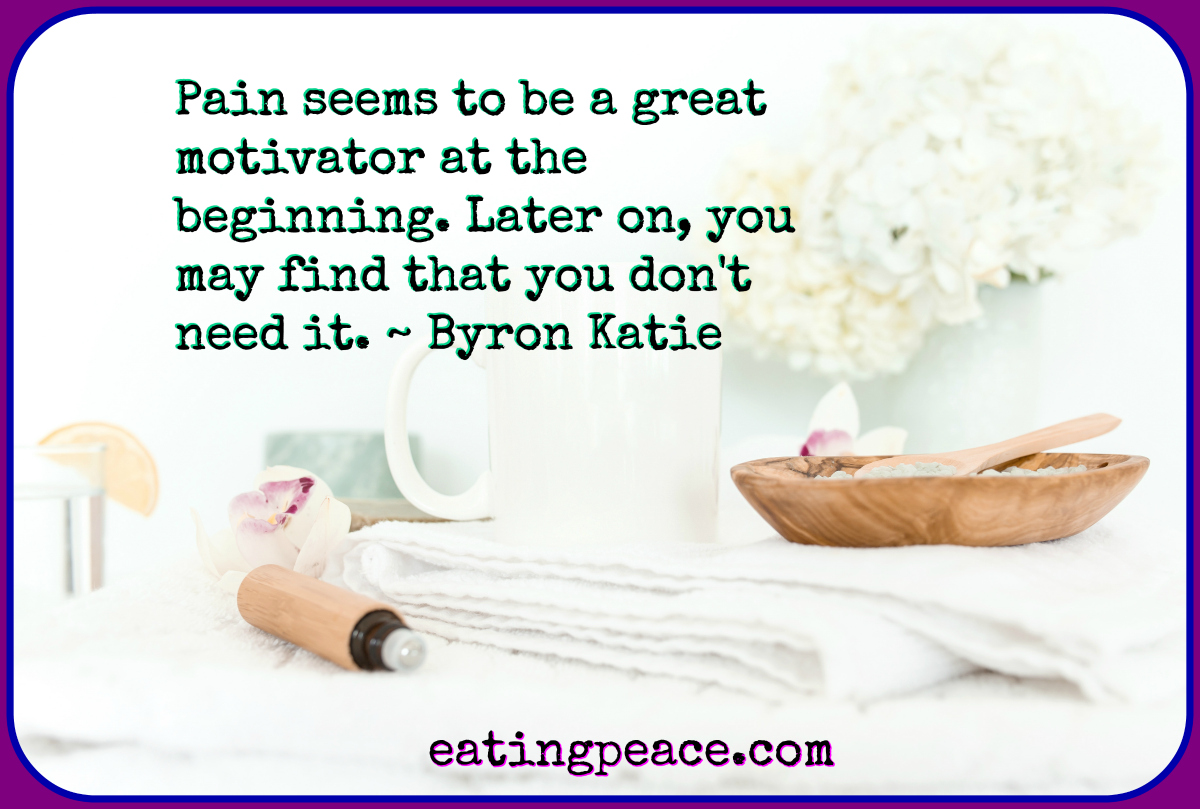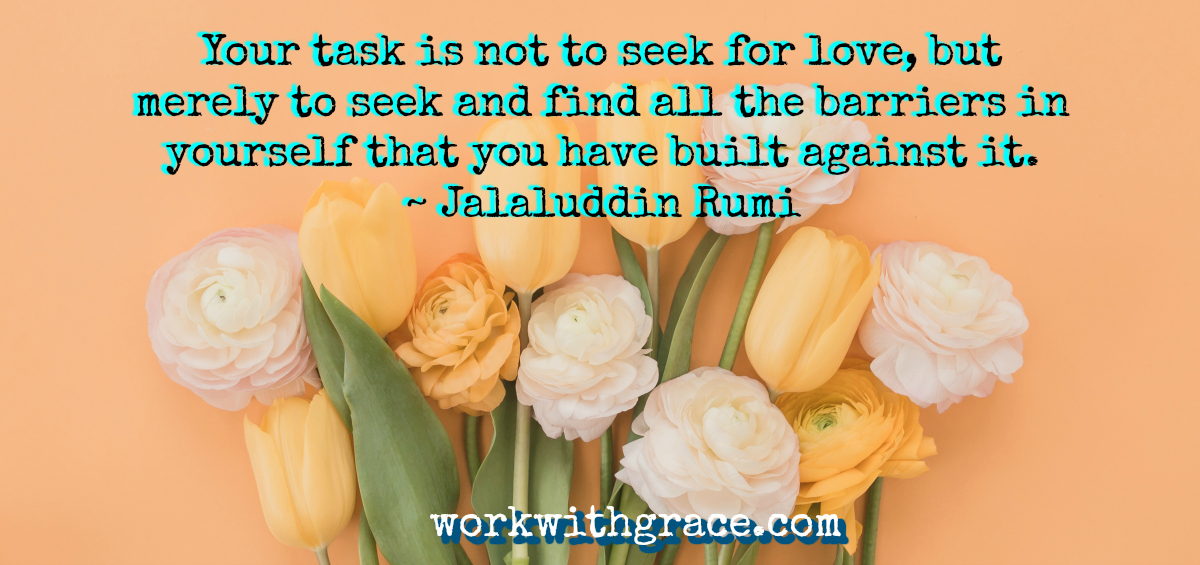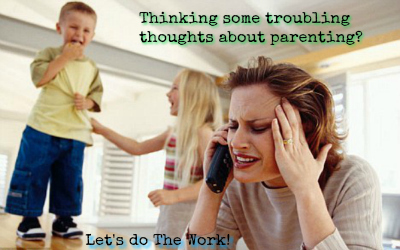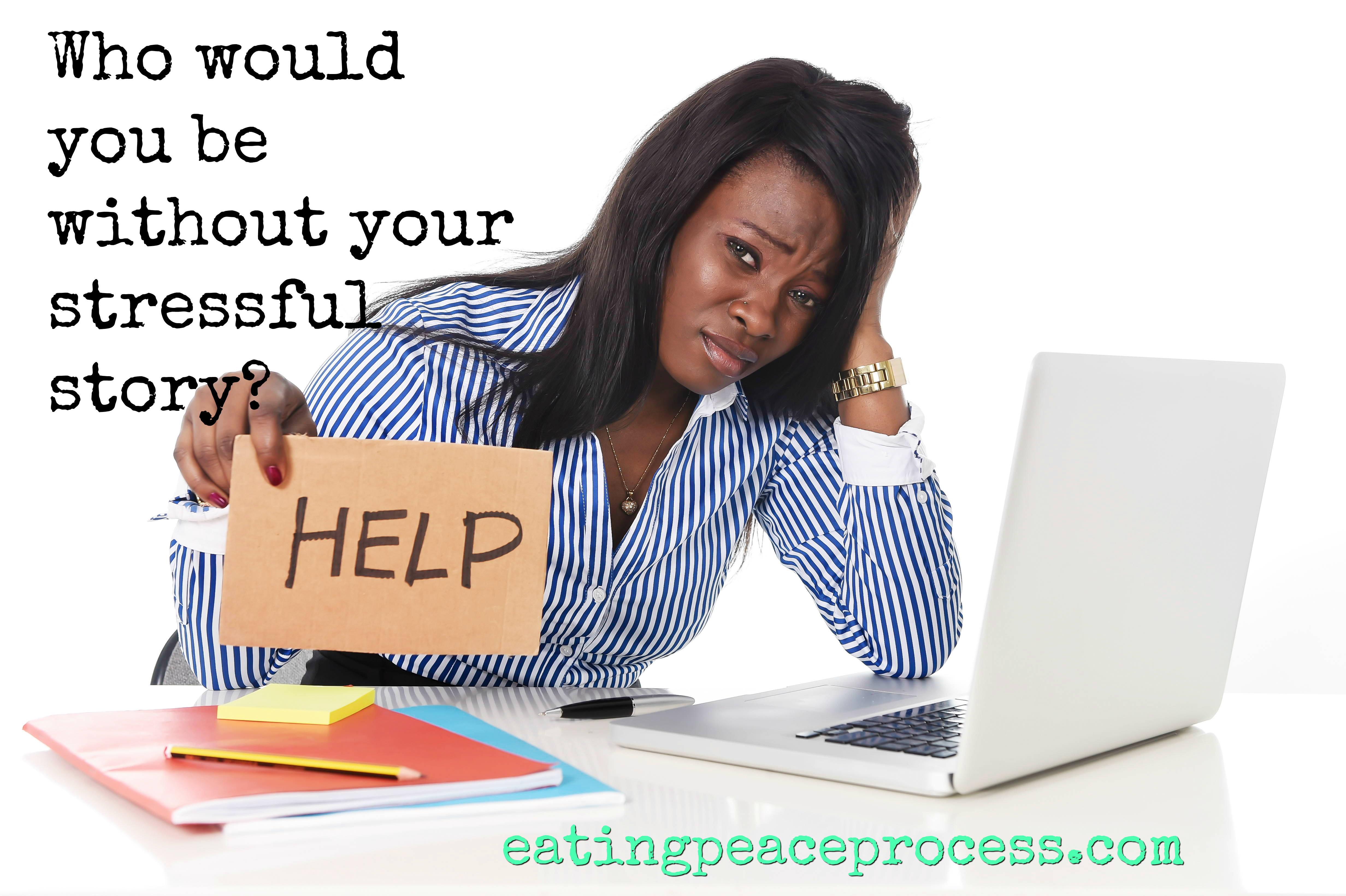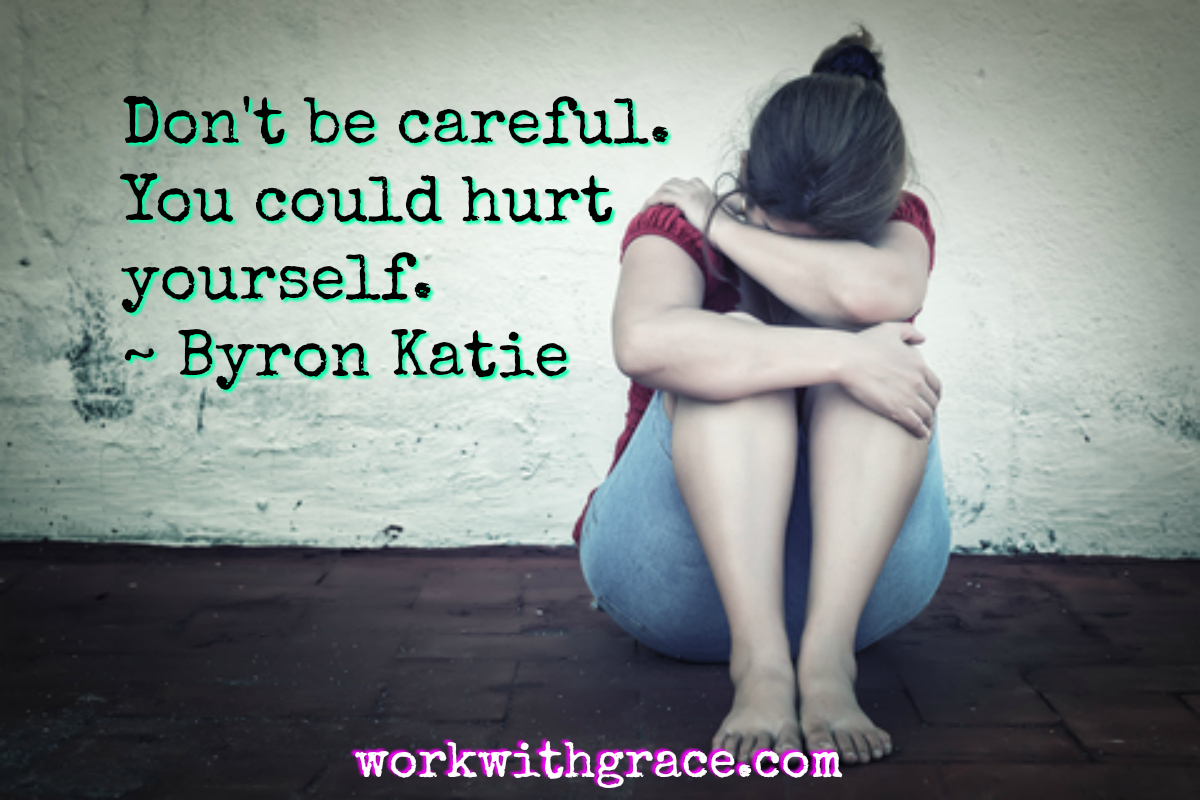
Speaking of parenting.
It’s easy for me to say my kids are a breeze. My son’s 23 and my daughter turns 21 in two weeks.
They appear to be so independent, friendly, clear about what they like, exploring possibilities in the world.
And I have days and weeks where I don’t see them physically in the same room and there’s not one request for my attention or help.
I remember longing for this freedom and the ability to rest when they were toddlers. It felt like this would never, ever, ever come again.
When I look back at that time….I realize I might have lifted a huge load of weight from my early mothering experience if I had known I could do The Work.
I could have questioned my thoughts like:
- I don’t have enough time
- I am responsible for their happiness
- I need to do this alone (without other moms, for example, to hang out with)
- I can’t leave them
- I’m the only one who knows exactly what they need
- they need to never suffer
None of these were true. They were incredibly stressful thoughts to think.
But here’s one of the most interesting things about my list of worries, complaints, concerns, hopes or dreams for my children: When I boiled it down, I did not trust reality.
But is it true that life will hurt your kids?
Think about the plights that people go through: loss, injury, disease, death of others, war.
Every human goes through “loss” of all these kinds when living life.
These are painful. They hurt. These events cause suffering.
Is it absolutely true? Are we sure?
I can’t be sure anymore.
I’ve sat in The Work with other people and with my own torments and found, shockingly, repeatedly, that awful things are survivable. I’ve found that happiness can flower even after horrible things have occurred.
How do you react when you believe life will hurt (see mental list of bad things that can happen)?
I’m afraid. I’m cautious. I use a lot of energy to prevent my kids from suffering. I say “yes” to them when I really do mean “no”. I clench inside if they wail. I see pictures in my head of bad things happening that I’ve heard about in the movies.
I worry.
One night, before I knew of The Work….I had an interesting experience of fear.
My then-husband, 3-year old daughter and 5-year old son had been in our new home for about six hours. Dusk grew to dark. We’d have our first sleep in our new place.
Boxes were stacked in every room. My then-husband and I were cutting them open, heavy into the unpacking process, making beds, fussing about from kitchen to living room to office to closets.
Finally, it was way past time to put out the lights and start a new day tomorrow.
I glanced in at my five year old son, in his new bedroom, already building a lego set in a small space on the floor surrounded by cardboard boxes and stacked furniture.
I made my way down the hall to my little daughter’s new room with a lavender wall and said “OK, tiny, let’s get your PJ’s on!”
She wasn’t there.
I called her name. No answer.
My husband was putting clothes into our dresser in our room. No daughter in there with him.
We began calling her name. My son came running.
The main kitchen door had been left standing open as it was a gorgeous Pacific Northwest summer night. It exited to the carport and the dark strip of woods between us and our neighbors, beyond.
I rushed through the door and called my daughter. My heart started beating faster and the tension to rise. I spun back into the house thinking it was impossible she’d be outside, so unfamiliar. We started looking under every table and in every room. I was literally running through the rooms, and then back outside again with a flashlight calling her as I shone the light into the woods, retracing my footsteps.
Soon the neighbors were helping us, with their flashlights. They looked through the entire house as well, and asked us all the same questions “When do you remember last seeing her? What was she wearing? Does she wander as a three year old–is this normal for her?”
Finally, feeling nauseated with fear….we called the local police.
Our first night in the new beautiful house. What a terrible omen. This is so horrible. I felt choked up.
The police arrived in 3 minutes. (It turned out the police station was 2 blocks away).
Two officers came in with their blue uniforms and said they’d like to take a look through the entire house first before doing anything else.
I was wringing my hands, thinking of kidnappings, or my little three year old fallen down the hill in the woods, sick with clammy sweat, my mind filled with terrible images.
I was saying things like “I’m so stupid” to myself, “I should have watched her closely in this new neighborhood” and “I can’t believe I left the door open” like the very neighborhood itself was suddenly a bad place and I should have been aware of it.
I followed the policemen down the hall and stood watching them look through every nook and cranny we had already examined: the closets, under the bed, behind and inside cardboard boxes on the floor, the dresser drawers.
As we entered my daughter’s new little bedroom, almost the last room to check, I saw a huge pile of all her stuffed animals dumped in the corner….and one of them moved.
Instantly, I felt ridiculous.
She had shifted while sound asleep under her stuffed gorilla, her favorite monkey, about five stuffed teddy bears and multiple beanie babies of all shapes and sizes.
The policemen said that 98% of the time with lost children, they’re only sleeping somewhere strange.
Jeez.
I tell this story, because my mind went absolutely ape-sh*t as we used to say, with visions of horror.
It was so very unnecessary.
Nothing happened except in my imagination, in my thinking.
But when I consider these types of fear-riddled moments, I see they came out of the belief “the world is a dangerous place”. That there’s loss. The world takes things I love away from me, including my children. There’s not enough to go around. One has to be very careful.
What has been profoundly helpful, is to go back to everything I’ve ever thought of as frightening that actually DID happen (supposedly), and to write down all my thoughts about that experience and take them through the four questions and turnarounds.
As I’ve looked at the “worst” things that ever happen to people in life (and sometimes that’s all it took to scare me is hearing third hand about stories)….
….I keep finding it’s not as bad as I thought. Ever.
Even if they’ve actually happened. I really mean it.
“One thing I love about the past? It’s over.” ~ Byron Katie
Who would you be without your stressful story of danger lurking out there in the future?
“Don’t lose your place. Don’t press Enter. Don’t log on. Only look. Observe. Stay with it. There’s a witnessing of this. Keep quiet. You may feel a lot of energetic noise. Your eyes go blurred in so many directions. But you are just the awareness within which this movement happens. Don’t judge. Don’t interpret. Keep quiet….Identify the presence that watches without boundary, and you’ll come to a point of complete stillness.” ~ Mooji
I notice things come, and things go. Including life itself. In the very moment of birth, death is inevitable.
Who are we without our fears?
Let’s keep finding out. It’s so much better than the alternative. It’s so much better than suffering, suffering and suffering.
Much love,
Grace
P.S. Today at 3:00 pm facebook to talk about the strange turnarounds for “the worst that could happen” becoming “the best that could happen”……Join me on the page here.
